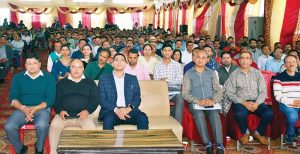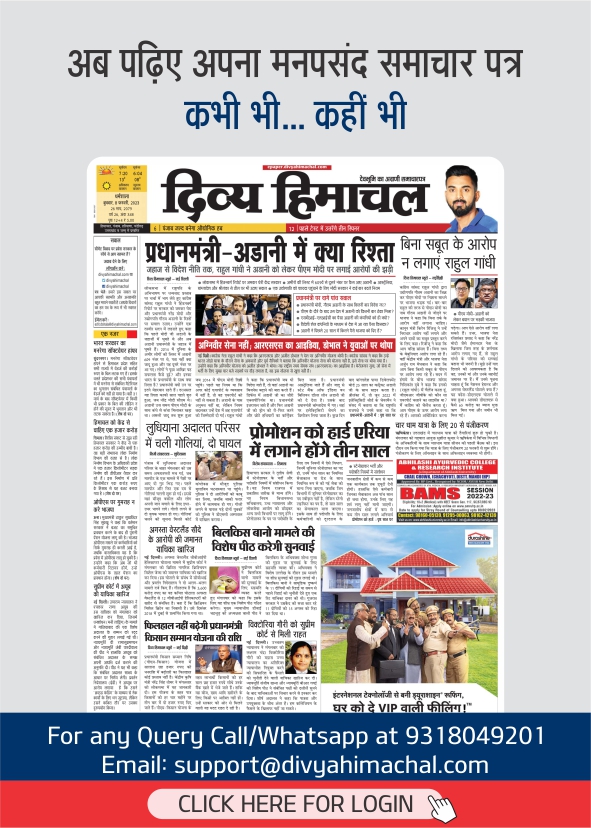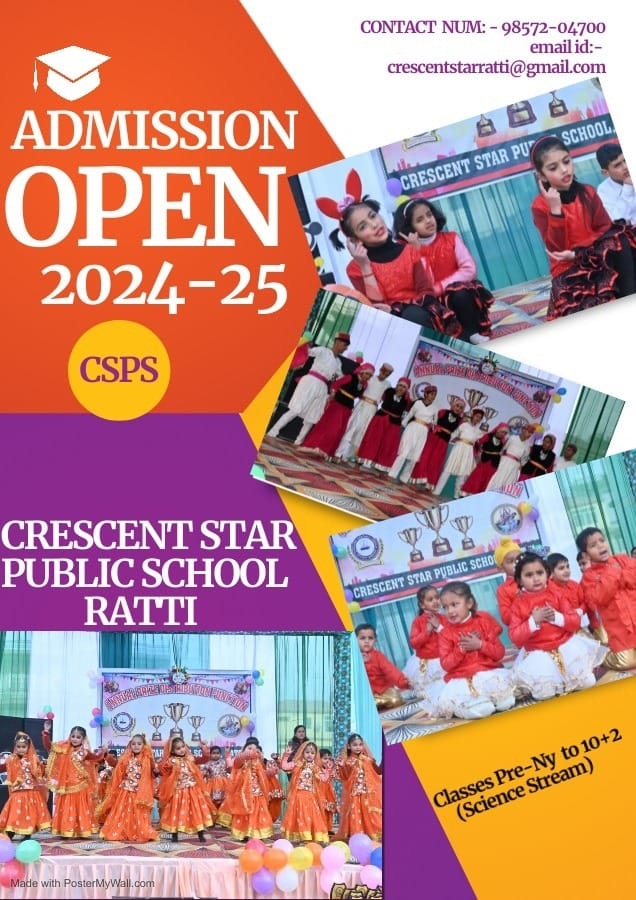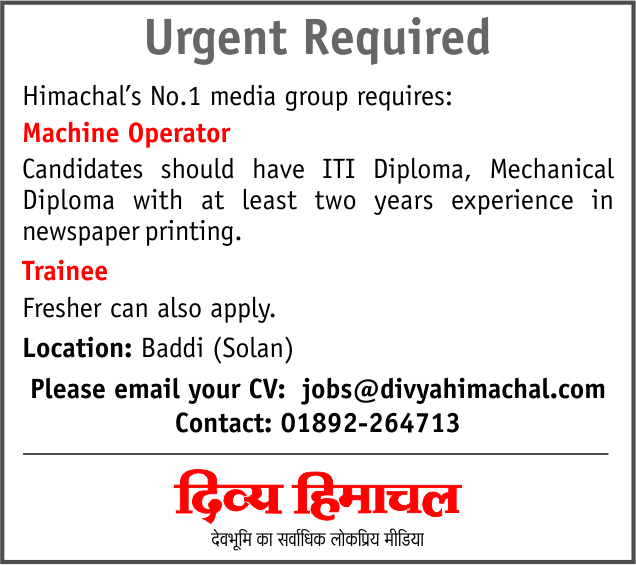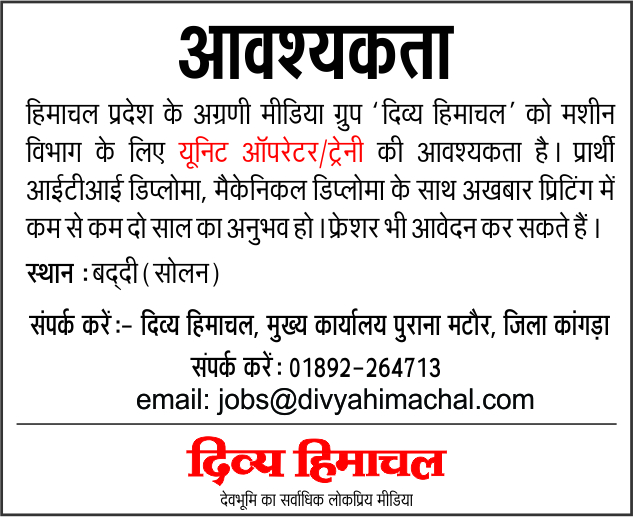‘Presidential System Is Better For India’
Bhanu Dhamija
Founder of Divya Himachal & Author of ‘Why India Needs the Presidential System’

Do Not Underestimate the Importance of a System of Government
We can do much in India but all our efforts will go to waste if our system of government is not right. We are all witnesses to today’s level of politics, the deal making, the breaking and making of state governments. We are all facing huge burden of taxes. We all know the condition of our courts, our towns and roads, and our government schools and hospitals. But the system of government also affects other things, like our values, our feeling of brotherhood, even our belief in God. I am worried because our system today is eroding our values and feeling of fraternity, making us corrupt and dependent upon government. Do you believe that we Indians are corrupt from birth, dishonest or hate each other? No, our system of government is making us that way. Same Indians become the best and most honest people while working in a better system. That is what’s happening in America. Indians there are considered among the wisest, most educated, and best earning people.
A wrong practice has taken hold in the country that whenever something bad happens, we say that the Indian people are bad. This notion is completely wrong because it’s our system of government and political arrangement which is making us like that. When you all say “our system is so bad,” you’re absolutely right.
What’s in the Presidential System that Can Help Us Get Rid of These Problems?
It is not difficult to understand the presidential system. It is very simple… a president, like Trump, is elected directly by the people. Not as our Prime Minister of India, who is elected by MPs or a party high command. The president only runs one-third of the government, known as the executive. Then there are MPs, called Congressmen in America because their legislature is known as Congress not Parliament; they are also directly elected by the people. They run the second part of government, the legislature. President and the legislature cannot remove each other, but scrutinize each other. Jointly, they constitute the third part of the government, known as the judiciary. This same model is followed in both the Centre and states.
This system’s biggest strength is that the power has been divided. Executive and legislative keep a check on each other, and the electorate controls them both directly. Elections are held every two years. But such small variations in these systems of government have resulted in a huge difference.
Presidential System Offers India Many Benefits in Today’s Context
First, the presidential system doesn’t allow anybody to indulge in manmani, to do as he pleases. It is a wrong understanding that a president is supreme under that system. He cannot enact any laws. On his own he cannot appoint any of the main officials of government. His budget is passed by the legislature which is not under his control. He also doesn’t have any control over state governments. He cannot dismiss them. So much so, that every member of his own cabinet, including the secretary of defence and secretary of the treasury, are approved by the senate.
Second, the presidential system allows good leaders to emerge. For this there are many reasons: they are directly elected by the people, not behind closed doors; and they have ample opportunities to show their capabilities as mayors of towns, governors of states, senators and congressmen. Every candidate is chosen by primary elections, not by party bosses.
Third important benefit is that there is no better system in the world to check corruption. It’s due to the presidential system’s separation of powers. The legislature, called Congress instead of Parliament, scrutinizes the president and his entire cabinet. Fourth benefit is that it helps in formulating a grass root agenda for the country. You have all seen how the entire country gets engaged through presidential debates on television.
Fifth, and perhaps the most important benefit for today’s India, is that it is not possible to function on the basis of religion or caste under the presidential system. It is because constituencies are big as well as different: senators are elected from the entire state and president from the entire country. It is not possible to win such varied and big elections on the basis of religion and caste.
Consider these Points of History
After experiencing the British parliamentary system for many generations, founders of America invented the presidential system in 1787. It was because they found the British system not suitable for a diverse and big country, and for a true republic. Britain was a monarchy. Second point of history is about India’s constituent assembly. The provincial constitution committee led by Patel proposed that governors should be directly elected by the people. But Nehru’s union constitution committee recommended that president should be elected indirectly by the MPs. A two day joint meeting of India’s 36 top people engaged in the making of the constitution, held on June 10 and June 11 1947, passed a resolution that Nehru should reconsider his decision. But that never happened.
There are many reasons why the presidential system was not adopted by India. But even the British had suggested that a pure parliamentary system was not suitable for our country. I believe that India’s partition could have been avoided had we adopted a system that ensured fair power sharing between the majority and the minority. In 1937, Jinnah had clearly stated that he was irrevocably opposed to any government formed under the parliamentary system. The reason was simple: majority forms the government and the minority gets nothing under the parliamentary system. This is why Pakistan became a reality.
India Still Committing the Same Mistake
There are many who advocated adoption of the presidential system. In 1953 Ambedkar said in Rajya Sabha that the parliamentary system India adopted didn’t benefit anybody. In 1963, KM Munshi wrote that if he was given another chance he would vote in favour of the presidential system. Then in 1998 Vajpayee said that we should look at the qualities of the presidential system. In 2012 Rajiv Pratap Rudy brought a resolution in Rajya Sabha that we should adopt some features of the presidential system. There are so many other names: Nani Palkhiwala, Khushwant Singh, President Venkataraman, Chiman Bhai Mehta, Arun Shourie, Ram Krishan Hegde, Vasant Sathe, Babulal Marandi, and now Shanta Kumar and Shashi Throor.
Some people out rightly reject the presidential system on the excuse that president is a dictator or can become one. But this is an absolutely incorrect view. It has never happened in 230 years history of America. Look at what is happening with Trump. However, it’s India’s present system, on the contrary, that has allowed many prime ministers to act dictatorially. Remember Indira Gandhi’s Emergency. Some people don’t like the American system because it is a capitalist society. Some of communist inclinations don’t like it because it is American. And so on. But we should not play with the future of our country and our children based on false impressions.
How to Adopt Presidential System
I agree that we should adopt the presidential system by following its principles honestly but modified for our needs in India. Are principles like separation of powers, federalism, direct election, judicial review… not in our interest? The right way to adopt the presidential system is by amending our constitution. Those who say that it would change the basic structure of the constitution are wrong. The Supreme Court in Kesavanand has said that the basic structure is ‘separation of powers’, not ‘parliamentary system’. The only problem is the leaders sitting in Parliament.
They don’t want change. All speakers at my book’s launch, including Shanta Kumar and Shashi Tharoor, openly said that our politicians are comfortable in the present system and they don’t want to change it. So we the people must demand and come forward. This can happen. I firmly believe that the future of India and our children is much more promising if we adopt the presidential system.
विवाह प्रस्ताव की तलाश कर रहे हैं ? भारत मैट्रीमोनी में निःशुल्क रजिस्टर करें !
Keep watching our YouTube Channel ‘Divya Himachal TV’. Also, Download our Android App








